
Time travel is one of the hallmarks of science fiction, but many time-travel-based movies have plots that leave one with a headache just thinking about them. What if you could travel into the past, change one thing, and completely reshape the future? Or, alternately, what if you could travel into the future to see what life looks like decades or centuries after your time? These are the two main questions posited by time-travel stories, and because mankind has not yet found a real-world means of time travel, that gives tremendous poetic license to writers and filmmakers to interpret and portray the possibilities of time-travel however they see fit.
Unfortunately, that is also a double-edged sword. With so much about time travel still theoretical at best, sci-fi movies essentially have to make up their own rules about how time travel would work and what the effects of traveling into either the past or the future would be. Here are ten movies that tell enthralling time-travel stories, but which still leave a lot of unanswered, and quite possibly unanswerable, questions.
1) Timecop

Jean-Claude Van Damme’s first $100-million hit Timecop cemented him as the spin-kicking action star of the ’90s, but its time-travel rules will also make your head explode. Set in 2004, Time Enforcement Agent Max Walker (Van Damme) must stop presidential candidate Senator Aaron McComb (Ron Silver) from using time-travel technology to wreak havoc on the past to fund his presidential bid.
Viewed purely as a sci-fi action movie, Timecop has plenty of great fight scenes, stunts, and Terminator 2-level effects to keep the viewer engrossed, all of which are necessary to distract from such questions as why only time-travel into the past is possible, why Timecops are shot into the past on a mini-rocket with only a pocket-sized device to get them back, and how the many alternate timelines seen in the movie even work. The 2003 straight-to-DVD sequel Timecop 2: The Berlin Decision is equally confounding in its time-travel logic, but it at least keeps the action quotient strong with Dragon: The Bruce Lee Story‘s Jason Scott Lee stepping in as a new butt-kicking Timecop.
2) Planet of the Apes (2001)
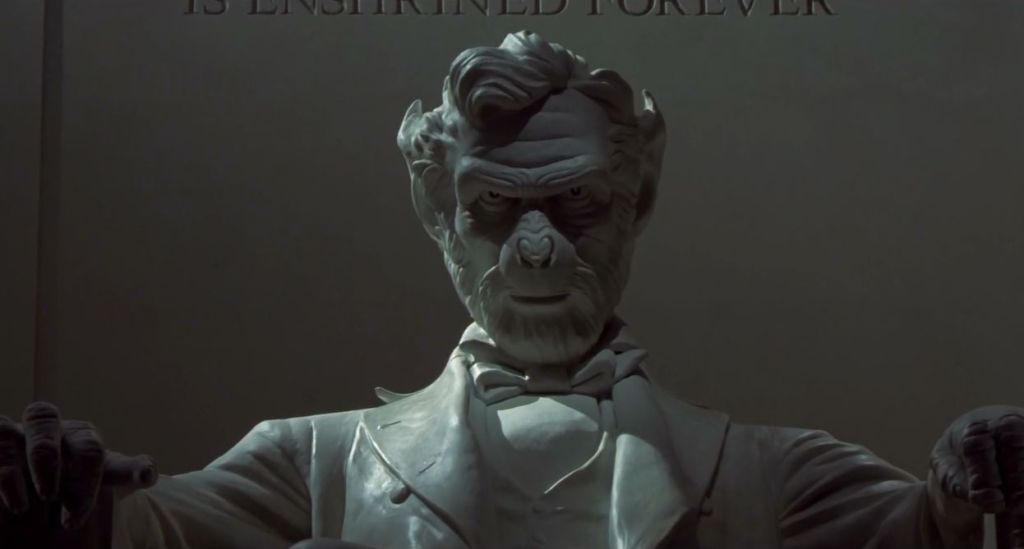
Tim Burton’s 2001 “re-imagining” of the 1968 classic Planet of the Apes doesn’t take place on Earth, but it retains the original’s time-travel elements and makes them even more head-scratchingly bizarre. When human astronaut Leo Davis (Mark Wahlberg) tries to save his loyal space chimp Pericles from a space storm, he finds himself skyrocketed centuries into the future onto a planet where talking apes rule over subjugated humans. In the movie’s climactic battle, Pericles finally arrives from the same storm, leading Leo to think he can get back to Earth in his time.
Instead, the Earth he arrives on is also ruled by talking apes, with the movie’s sinister villain General Thade (Tim Roth) having somehow beaten him back to Earth and achieved Abraham Lincoln-level reverence among Earth’s ape population. Even if one has PhD-level knowledge of time dilation and theoretical physics, Planet of the Apes is a time-travel sci-fi movie with one question mark after another.
3) Bill & Ted’s Excellent Adventure

Obviously, concepts like scientific accuracy and logic are completely moot points in an intentionally and endearingly silly sci-fi comedy like Bill & Ted’s Excellent Adventure, and that’s a good thing with the level of comedic absurdity it operates on. In Bill & Ted’s Excellent Adventure, aspiring rock stars Bill (Alex Winter) and Ted (Keanu Reeves) find themselves on a mission of universe-preserving importance. The duo’s music will eventually lead to Earth becoming a rock-powered utopia, Bill and Ted revered as “the Great Ones” centuries in the future, but it is up to time-traveling emissary Rufus (George Carlin) to make sure the duo passes high school history, or risk Earth’s peaceful future being gravely altered.
Bill & Ted’s Excellent Adventure makes up the rules of time travel ten times more than the average time-travel adventure, and pondering how Bill and Ted passing or failing history class, or how time-travel via phone booth would even be possible, completely goes south after five seconds, maximum. Logical it ain’t, but that also doesn’t change the fact that Bill & Ted’s Excellent Adventure is indeed excellent.
4) Hot Tub Time Machine
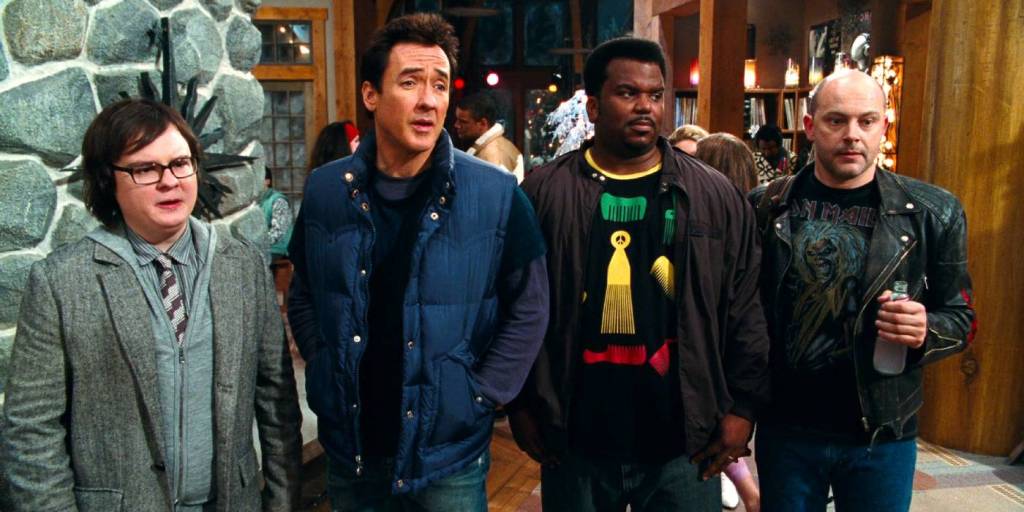
“It must be some kind of…hot tub time machine,” as Craig Robinson’s fourth-wall-breaking Nick puts it when he and his friends find themselves warped from 2010 to 1986 by a jacuzzi. Hot Tub Time Machine is nothing if not honest about being every bit as silly as Bill & Ted’s Excellent Adventure (and about 100 times more raunchy) in its nostalgic ’80s throwback time-travel adventure.
Virtually nothing about the logistics of time-travel in Hot Tub Time Machine makes sense, nor for that matter does the movie make any effort to explain such space-time continuum elements as Chevy Chase’s repairman getting the jacuzzi back in order with an in-depth knowledge of time-travel, or the fact that the four protagonist’s clumsy efforts to recreate the activities of their 1986 ski trip should alter the timeline far more than anything Lou (Rob Corddry) does. Far more than most time-travel movies, Hot Tub Time Machine goes out of its way not to make any sense at all.
5) The Terminator

The Terminator franchise is built around one centralized premise — the computer program Skynet launches a war against humanity in the future, and sends a programmed cybernetic assassin known as a Terminator back in time to kill John Connor before he can lead the human resistance to defeat Skynet. 1984’s The Terminator is a classic of sci-fi and action, but its time-travel concept is a real can of worms once one thinks about it.
For example, how do the machines even know if their mission has been successful since time travel is a one-way trip in post-apocalyptic Earth? What exactly is Arnold Schwarzenegger’s T-800 even supposed to do once he’s completed his mission? Moreover, the question of whether the past can be altered at all or not is one that has hovered over the entire franchise since the revelation of Kyle Reese (Michael Biehn) being John’s father from the future. The Terminator and all of its sequels are a rabbit hole of unanswerable time travel questions, but still seminal time-travel stories in the sci-fi genre nonetheless.
6) Avengers: Endgame
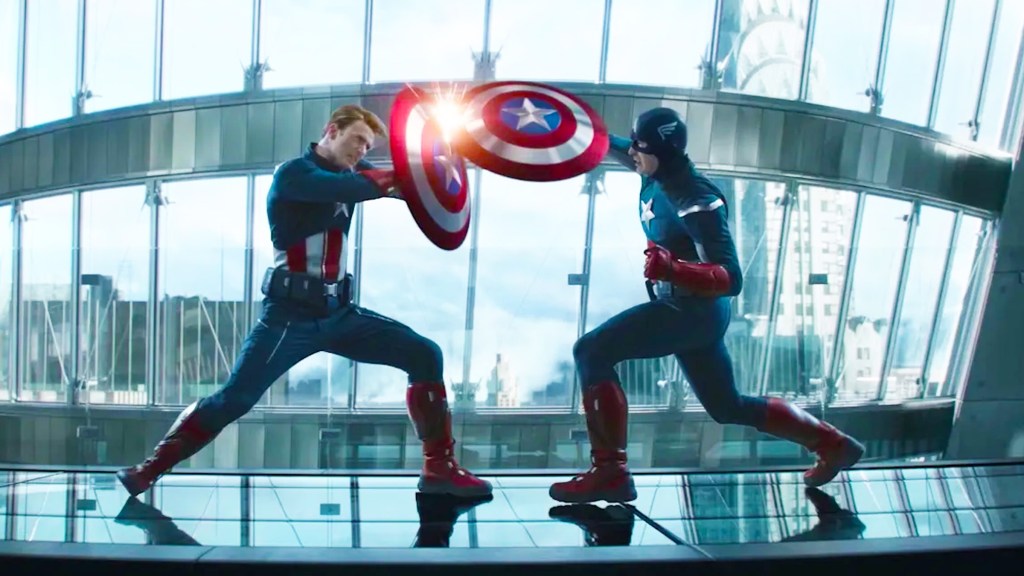
2019’s Avengers: Endgame was the epic payoff of Marvel Studios’ long-running Infinity Saga, but the movie sweeps all time-travel-related questions under the rug. With Earth’s Mightiest Heroes traveling into the past to retrieve the Infinity Stones and undo the apocalyptic snap of Thanos (Josh Brolin), Smart Hulk (Mark Ruffalo) gives one of the most rushed and absolutely ridiculous explanations of time travel in cinematic history, stating, “If you travel to the past, that past becomes your future, and your former present becomes the past, which can’t now be changed by your new future.”‘ Uh-huh.
On top of that, the movie’s last scene with the elderly Steve Rogers (Chris Evans), having lived out the years he missed with Peggy Carter (Hayley Atwell), doesn’t even try to address whether Steve has created a time paradox with his alternate life after he returned the Infinity Stones to their proper places. Box office records, general cultural phenomenon status, and its truly epic final battle with Thanos aside, Avengers: Endgame does many things marvelously, but explaining time-travel isn’t one of them.
7) X-Men: Days of Future Past
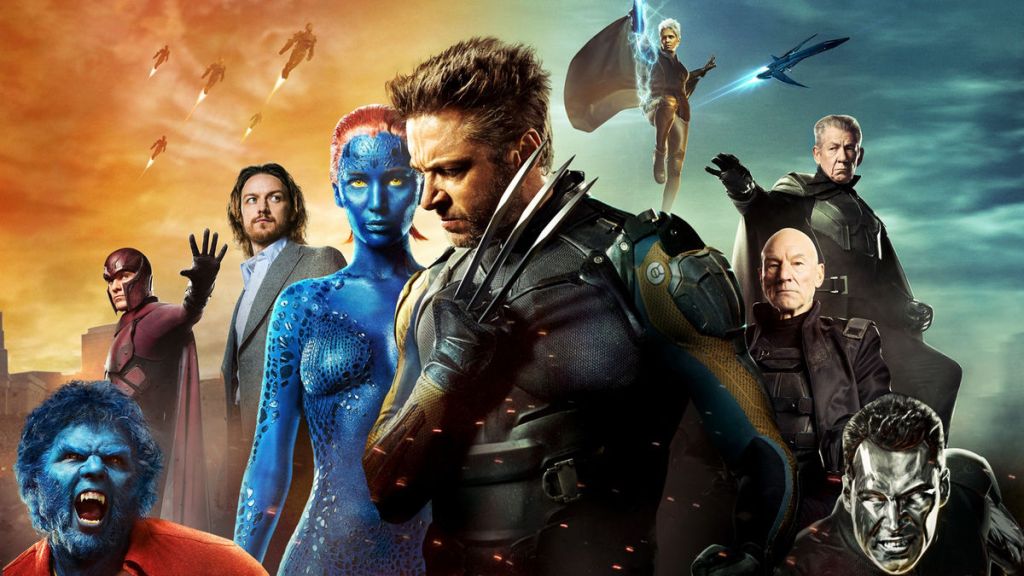
The Fox-Marvel universe got in on the time-travel game five years ahead of the MCU with 2014’s X-Men: Days of Future Past. Based upon the eponymous Marvel Comics story, Days of Future Past sees Wolverine (Hugh Jackman) projected back to the year 1973 to prevent the assassination of scientist Bolivar Trask (Peter Dinklage) by Mystique (Jennifer Lawrence), which will lead to the creation of his Sentinel army and the eventual downfall of both man and mutant alike.
The X-Men franchise’s continuity started to get jumbled around 2011’s X-Men: First Class, but Days of Future Past is a complicated time-travel web all on its own, plagued by one question above else of how and why the timeline resets right when the X-Men are on the verge of defeat by the Sentinels, opening the question of how exactly changes to the past take root in the future. X-Men: Days of Future Past is arguably the best proper X-Men movie, but its time-travel rules are as malleable and full of questions as any other time-travel adventure.
8) The Flash
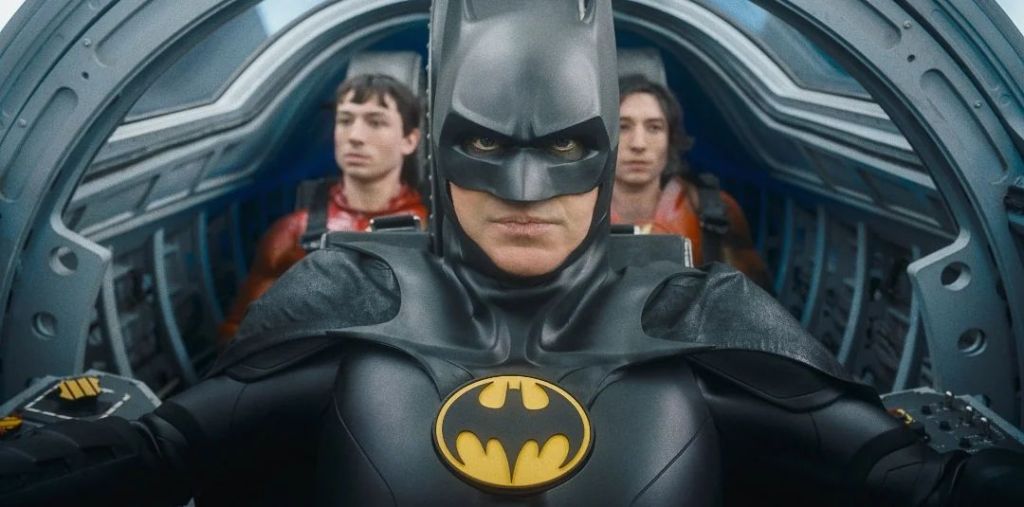
Based upon the popular DC Comics storyline Flashpoint, 2023’s The Flash follows Barry Allen (Ezra Miller) as he travels into the past to prevent the murder of his mother Nora (Maribel Verdú). Barry ends up creating an alternate reality in which General Zod (Michael Shannon) is back to terraform Earth, with Michael Keaton’s elderly Bruce Wayne explaining that time-travel creates a new future and a new past in a multiverse that is like a bowl of spaghetti.
While one of the most clever time-travel explanations in recent memory, The Flash‘s multiverse story leaves one wondering whether Keaton’s timeline has fully merged with the DCEU, or whether altering the timeline swaps out inhabitants from different timelines (which seemingly happens again with the appearance of George Clooney’s Bruce Wayne in the movie’s ending). Keaton’s Batman himself describes the multiverse as “a hot mess” and “a crapshoot,” and that is certainly born out of The Flash‘s fascinating but still complicated time-travel/multiverse combo story.
9) Austin Powers: The Spy Who Shagged Me

Crass, dated, and often cringe-worthy humor aside, 1999’s Austin Powers: The Spy Who Shagged Me is a time-travel nitpicker’s delight in the mission of Austin Powers (Mike Myers) to travel back to 1969 to retrieve his stolen mojo. The finale in particular, in which “Austin Ten Minutes From Now” saves both his past self and Felicity Shagwell (Heather Graham) from the exploding moon lair of Dr. Evil (Mike Myers) is a real time paradox.
How, exactly, do two Austin Powers’s from different points in the timeline co-existing even function, especially since the potential death of past Austin is an inherent danger to the life of Austin Ten Minutes From Now? That’s also without getting into Scott Evil (Seth Green) rightly pointing out that he could be done with Austin for good by killing him in the past instead of just stealing his mojo. As both Austin and his confidante Basil Exposition (Michael York) directly point out to the audience, pondering such questions takes all of the fun out of time-travel stories like Austin Powers: The Spy Who Shagged Me.
10) Back to the Future Part II
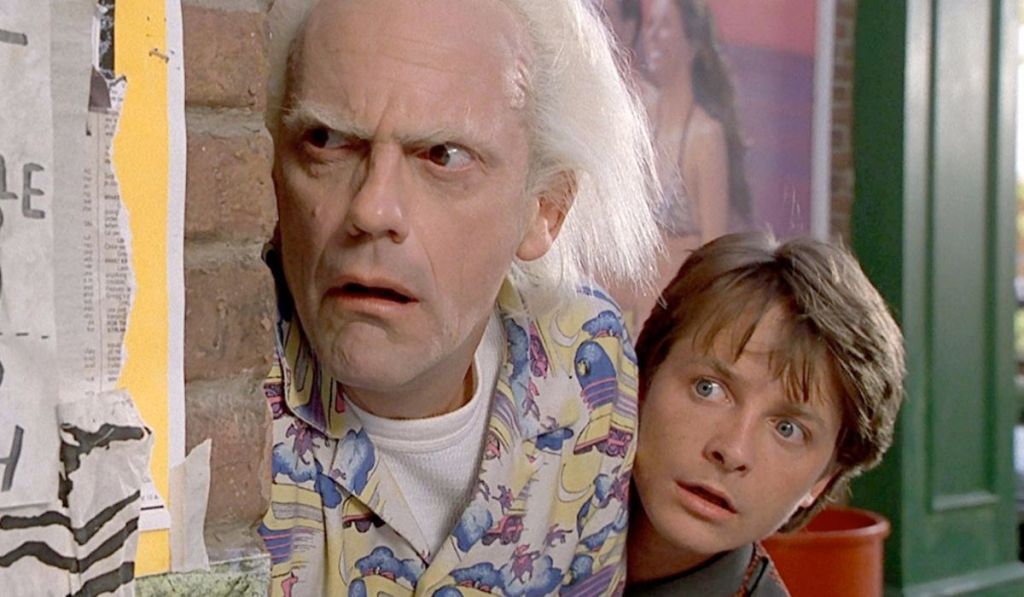
As everyone immediately pointed out upon the arrival of October 26th, 2015, most of the flashy, futuristic sci-fi technology seen in Back to the Future Part II hilariously never came to be. However, the mission of Marty McFly (Michael J. Fox) and Doc Brown (Christopher Lloyd) is riddled with time paradoxes and unanswered questions the moment that Biff Tannen (Thomas F. Wilson) gets hold of an Almanac from the future.
For example, with Biff altering the timeline so much, do the changes that Marty made in the original Back to the Future still hold after Marty undoes Biff’s changes, or are those undone too? Also, if Biff has indeed created an alternate 1985, as Doc Brown posits, does that mean that he and Marty create an alternate 1955 when they travel back again to change Biff’s changes? Back to the Future might be the definitive time-travel sci-fi franchise, but Back to the Future Part II is the peak of the movie’s unexplained time-travel paradoxes.
What do you think are the most confusing time-travel movies? Let us know in the comments!
The post 10 Great Time-Travel Movies (That Make My Brain Hurt) appeared first on ComicBook.com.


